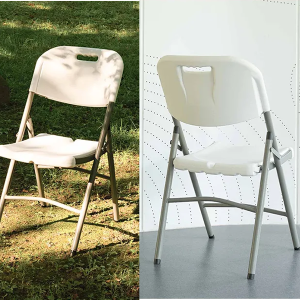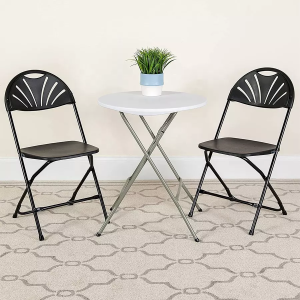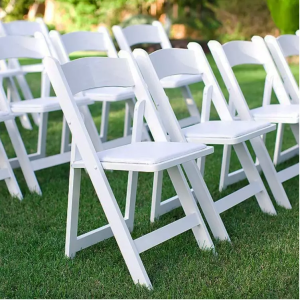More
The Environmental Impact of Plastic Folding Chairs: Exploring Sustainable Options
The Environmental Impact of Plastic Folding Chairs: Exploring Sustainable Options
Introduction:
As environmental awareness grows, industries worldwide are embracing sustainable practices to minimize their ecological footprint. The furniture industry, including plastic folding chairs, is no exception. In this blog, we will delve into the environmental impact of plastic folding chairs and explore the various sustainable options available. By understanding the eco-friendly alternatives, we can make conscious choices that support both our seating needs and our planet’s well-being.
Environmental Impact of Traditional Plastic Folding Chairs:
Plastic folding chairs have traditionally been made from polypropylene (PP), a widely used and recyclable plastic. However, their production involves energy-intensive processes and the consumption of fossil fuels, contributing to greenhouse gas emissions. Additionally, some plastic chairs end up in landfills at the end of their life cycle, leading to environmental pollution and degradation.
Recycled Plastic Folding Chairs:
One of the most sustainable options available is recycled plastic folding chairs. These chairs are crafted from post-consumer or post-industrial recycled plastic materials, reducing the demand for virgin plastic production and diverting plastic waste from landfills. Using recycled plastic not only conserves valuable resources but also lowers the carbon footprint associated with the manufacturing process.
Biodegradable and Compostable Chairs:
Innovations in sustainable materials have given rise to biodegradable and compostable plastic folding chairs. These chairs are made from renewable resources, such as cornstarch or sugarcane-based bioplastics. Unlike traditional plastics, biodegradable chairs break down naturally over time, leaving no harmful residues. Compostable chairs go a step further, offering a solution that can be broken down into nutrient-rich compost, supporting soil health and agriculture.
Recyclability and Closed-Loop Systems:
Choosing plastic folding chairs made from recyclable materials encourages a closed-loop system, where the chairs can be recycled into new products at the end of their life cycle. Manufacturers and consumers play a vital role in ensuring that recyclable chairs are responsibly collected and processed. Supporting a circular economy by opting for recyclable chairs helps reduce waste and conserves raw materials.
Forest Stewardship Council (FSC) Certified Wooden Folding Chairs:
For those seeking alternatives to plastic, wooden folding chairs are an eco-friendly choice when sourced responsibly. Look for chairs certified by the Forest Stewardship Council (FSC), which ensures that the wood used is sustainably harvested from well-managed forests. FSC-certified wooden folding chairs have minimal environmental impact, and their durability allows for long-term use.
Repurposed and Upcycled Chairs:
Consider exploring repurposed or upcycled plastic folding chairs. Some manufacturers and artisans create unique designs by using discarded plastic materials creatively. These chairs not only breathe new life into waste but also promote the idea of circularity and resourcefulness.
Conclusion:
The environmental impact of plastic folding chairs is a growing concern in today’s eco-conscious world. However, sustainable alternatives are now readily available, empowering consumers and businesses to make environmentally responsible choices. From recycled plastic chairs that reduce waste to biodegradable and compostable options that minimize pollution, there are numerous avenues to explore for those seeking eco-friendly seating solutions. Embracing the principles of sustainability, such as supporting a circular economy and choosing responsibly sourced materials, allows us to foster a healthier planet while fulfilling our seating needs. As we strive towards a greener future, let us actively contribute to reducing our ecological footprint by opting for sustainable plastic folding chairs or exploring other environmentally friendly seating options.













